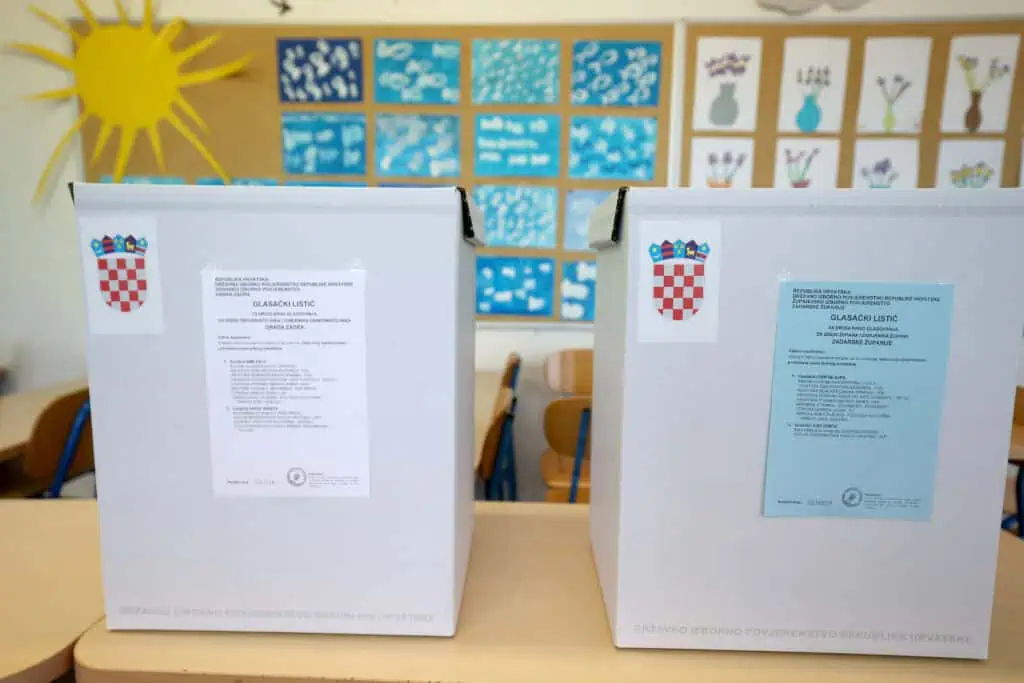
Gong submitted a proposal to the Constitutional Court to review and change the decision of June 2, which declared a ballot paper in Zadar, on which the list was duly circled, but at the bottom of the ballot paper, an illegible word was added, invalid. The decision was made by a narrow majority, with only one vote separating the two sides, and the six judges who voted against the decision provided detailed arguments for their opposition in a separate opinion.
Decisions of the Constitutional Court should strengthen the rule of law, be well-reasoned, and guide the future actions of election commissions when determining the validity of ballot papers, and should be a source of legal certainty and predictability. The disputed decision on the ballot paper in Zadar, however, will have the exact opposite effect. It will become a source of legal uncertainty and arbitrariness. Since in a democracy, which is simply unthinkable without periodic, free and fair elections, every vote is equally important and can be decisive for the election results, the disputed decision of the Constitutional Court can in certain circumstances, also be a source of possible social conflicts.
Gong's proposal was supported by civil society organizations House of Human Rights, the Center for Peace Studies, Croatian Youth Network, and lawyer Vesna Alaburić, Assoc. Prof. Dr. Sc. Dario Čepo from the Department of Sociology at the Faculty of Law, University of Zagreb, activists Marina Škrabalo and Mladen Majetić.
A ballot on which a voter has circled the ordinal number in front of the candidate's name is valid unless, exceptionally, the voter has written something on the ballot that casts doubt on his or her voting will, and therefore it cannot be determined with certainty which candidate the voter voted for. In other words, the added word, sign, drawing, or letter must cast doubt on the voter's vote for the list or candidate under the ordinal number he or she has circled.
If the added word cannot even be read, let alone the meaning of it with certainty, then the added "sign" cannot cast doubt on the voter's will expressed by circling the ordinal number of the list or candidate.
From the contested ballot, it is already evident at first glance that the content of what is written can only be guessed at; it cannot be determined precisely, for all people unanimously. But, even if we were to accept the thesis of the majority at the Constitutional Court, if the ballot had written "No, no, can't" or something similar, it remains completely unclear in what way and why those words would negate the clearly expressed will of the voters and thus make the ballot invalid. The decision of the Constitutional Court does not contain a single word of explanation on this key issue.
The Constitutional Court's decision of June 2, 2025, to declare the written ballot in Zadar invalid is contrary to its previous practice, as it does not provide an explanation for treating this ballot differently and reversing its previous decision. It leaves the impression of complete arbitrariness.
Following the Constitutional Court's decision of June 6th, 2025, when the second disputed “crossed out” ballot was declared valid, the political party Pravo i Pravda won a mandate in the Zadar City Council. Therefore, reviewing and changing the decision of June 2nd, 2025, would not subsequently affect the outcome of the elections. In such circumstances, a new decision of the Constitutional Court would be solely in the interest of equality, respect for human rights, democracy, and in the interest of free and fair elections.
